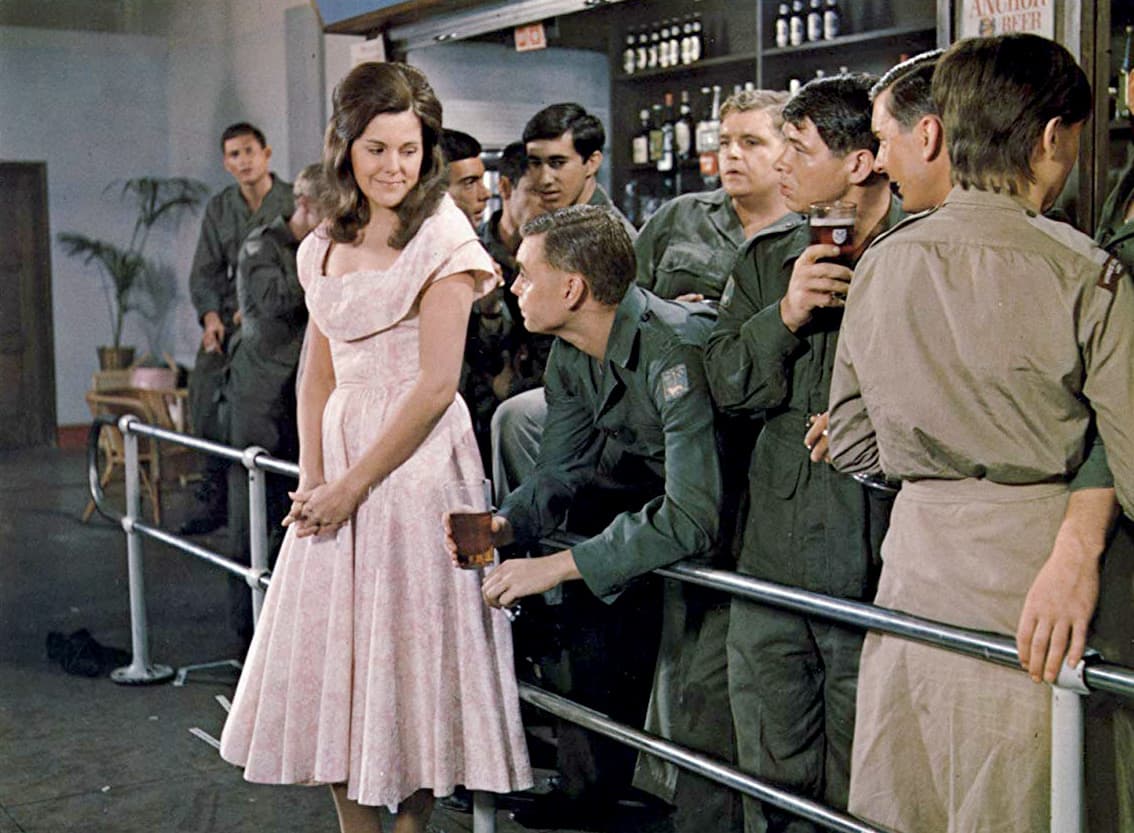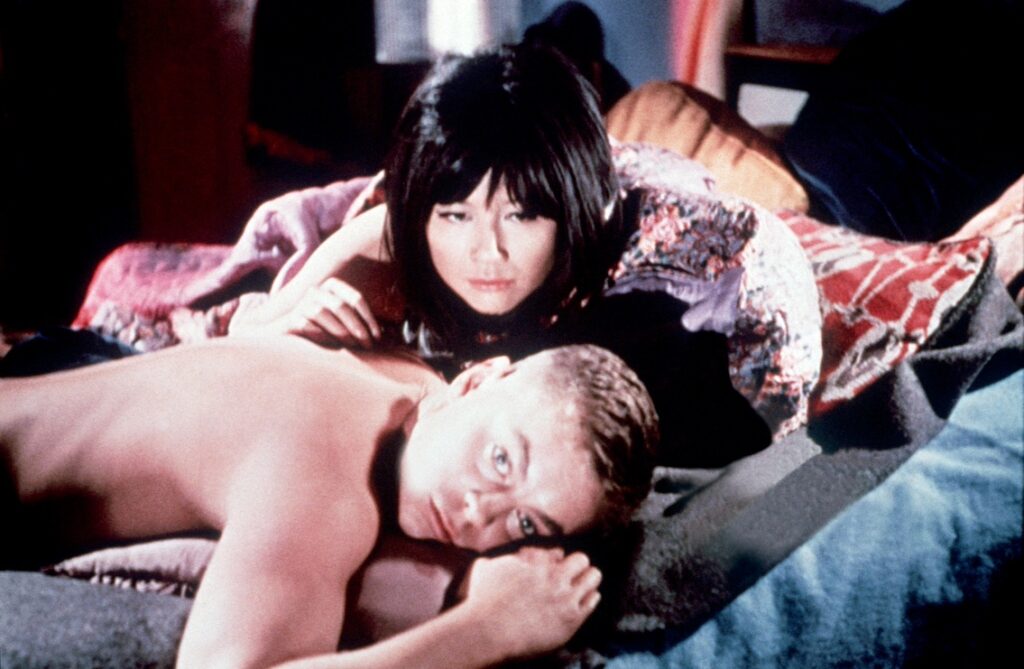‘The Virgin Soldiers,’ a 1969 Film in the Tradition of ‘Catch-22,’ Gets Rescued From Obscurity
One reason the film is a discovery could be that its director, John Dexter (1925-90), was less a cinematic auteur than a man of the theater. He was a pivotal figure on the stage in his native England and New York City.

Pop culture obsessives should have their interests piqued by Powerhouse Films’s Blu-ray restoration of “The Virgin Soldiers” (1969). As the opening credits begin, we listen to an increasingly jaunty military march during which we learn that it was composed by, as he is listed, Raymond Douglas Davies.
The front man for a seminal rock band, the Kinks, and author of such testaments to Western culture as “You Really Got Me” and “The Kinks Are The Village Green Preservation Society,” Ray Davies isn’t the only rock star affiliated with the picture. David Bowie can be espied — just barely and only briefly — being hoisted aloft in a scene that takes place in the back of a pub.
That ain’t all. A once and future Bond Girl, Tsai Chin — she appeared in “You Only Live Twice” (1967) and had a cameo in “Casino Royale” (2006) — has a memorable role as a prostitute, Juicy Lucy. Although Lynn Redgrave was a known quantity, having garnered significant notice after her Oscar-nominated role in “Georgy Girl” (1966), it’s odd to see her play a wallflower oh-so-dreadfully concerned that people think she’s a lesbian. It was, as right-thinking folks frequently note nowadays, a different time.
“The Virgin Soldiers” was a moderate hit in the United Kingdom and less than moderately received by the British commentariat. A critic for the Monthly Film Bulletin compared it to a randy and much-beloved series of farces known as the “Carry On” movies, and employed adjectives like “portentous,” “monstrous,” and “foul.” Stateside, an uncredited but kindlier writer for Variety listed the picture as “a bright and affectionate peek at the trials and tribulations of young National Service rookies.” For most of us, I’m guessing, the film is a discovery.

Can a reason be that its director, John Dexter (1925-90), was less a cinematic auteur than a man of the theater? He has a total of three feature films under his belt — along with “The Virgin Soldiers,” there was “The Sidelong Glances of a Pigeon Kicker” (1970) and “I Want What I Want” (1972) — and a handful of television credits. Otherwise, Dexter was a pivotal figure on the stage in his native England and New York City. Among his stints were as producer and director of “Equus,” “M. Butterfly,” and a run of productions at the Metropolitan Opera. “Fury for perfection,” he wrote, “makes me difficult to work with.”
“The Virgin Soldiers” was based on a 1966 novel of the same name by Leslie Thomas. A fictionalized version of his experiences as a conscript in the British army, the book takes place in Singapore during an attempted overthrow of the British Commonwealth by a communist independence group. Much like the Korean War in Robert Altman’s “M*A*S*H” (1970), “The Malaysian Incident” in “The Virgin Soldiers” is a stand-in for Vietnam. Mordant commentary and comic disaffection are the rule.
Dexter’s film is an ensemble piece anchored by Private Brigg (Hywell Bennett navigating naivete and cynicism) and the daughter of the regimental sergeant major, Phillipa Raskin (Redgrave). Each of them has an eye on the other and both are, as per the film’s title, inexperienced in the ways of love.
Their relationship is fractious, as are those between the majority of players with the notable exceptions of an openly gay couple and Lieutenant Colonel Bromley Pickering (Michael Gwynn). Fans of tut-tutting British archetypes — think P.G. Wodehouse’s Lord Emsworth — will find the latter character particularly endearing.
The story ambles along some genuinely comic and, at moments, suggestive byways: Neither Dexter nor screenwriters John Hopkins, John McGrath, and Ian La Frenais could resist a phallocentric joke or allusion. You don’t have to be a by-the-book feminist to find the story’s tawdrier byways disconcerting, and the film’s climactic turn toward high drama is unwieldy though, on the whole, well-directed.
If “The Virgin Soldiers” isn’t as notable an anti-war entertainment as “How I Won the War” (1967) or “Catch-22” (1970), neither does it suffer from the comparisons. Given its relative obscurity, those of sturdy temperament might consider dipping a toe in the byways of a more innocent time.

